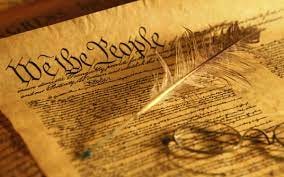This article is in continuation of my series on Ethereum. Check out that article to get a foundational understanding before reading this one.
Can an institution or organisation be governed based on computer code?
In the real world, most organisations operate based on rules. Ideally, these rules are written and communicated to the organisation's members. Many organisations or companies have a top-down approach, with management setting rules and employees following them. Sometimes, employees are consulted when rules are changed, or new rules are made. But the final decision still rests with the management. Some examples of rules within organisations are HR Policies, Standard Terms & Conditions for Contracts, Incentive Structures, Manufacturing & Sourcing Policies, Vendor registration, etc.
What about a collective or cooperative style organisation? Such organisations are usually started to protect the interest of all stakeholders. But, even such organisations are dependent on leaders to make the decisions. They control the functioning of the organisation. Leaders may be elected from within, but sometimes competent managers are recruited from outside the organisation. Rules are set by leaders or a core element of the group, like a board of trustees. The larger member body rarely gets to have a say.

What if these rules are encoded as a computer program? Can you run an organisation without a central authority? Ethereum made it possible to create such organisations, commonly known as DAO or decentralised autonomous organisations.
I will attempt to explain DAO with the help of an imaginary scenario.
In our imaginary scenario, private taxi drivers in Bangalore are dissatisfied with the arbitrary rules and fee structures introduced by popular taxi service aggregation apps. They decide to band together to start their own app-based taxi service for customers. But instead of electing leaders and asking them to take all the decisions, this collective has created a DAO on Ethereum called the Bangalore Drives DAO (BDDAO). Anyone can join this DAO. To be part of the BDDAO, you have to pay Rs. 10,000/- (in Ethereum) to the DAO. In exchange, you will be issued 10,000 tokens by the DAO. Let's call this token the "Bangalore Drive Token" (BDT).
Members can use their BDT to suggest new rules, vote for implementing new regulations, reject proposed rules, etc. The weightage of a member's vote is based on how many BDTs he has. Everyone starts with 10,000 BDT. Subsequently, BDTs are issued to members based on the rules of the DAO. Our imaginary DAO has set the following rules that determine how a member earns new BDT:
Accepting a trip: 5 BDT
Completion of a Trip: 5 BDT
5-star rating for a Trip: 10 BDT
Every 100 km covered on Trips: 10 BDT
More than five trips a day: 20 BDT
A member can buy BDT from another member subject to a maximum of 10,000 BDT a week.
Some additional rules that govern the DOA are
Any member with < 1,000 BDT for 30 consecutive days will be automatically removed from the DAO, and they will forfeit their BDT.
A member or group can suggest a new rule or rule change by staking 10,000 BDT, which will be returned if the group accepts the proposal through voting.
A minimum of 50% of the members of the DAO have to cast a vote. Only then is the proposal accepted as valid.
A minimum of 60% of weighted votes must favour the proposal to get approved.
Members against the proposal have 15 days to call for a reversal of the proposal by staking 10,000 BDT.
Taxi fare is directly linked to Fuel Prices and Consumer Inflation Index. Any change in taxi fare rules requires a minimum stake of 1,000,000 BDT.
Ether collected by the DAO when a new member joins is used for the welfare of the members.
As you can see, members need to collect and accumulate BDTs. One BDT is equivalent to One vote within the organisation. So the more BDTs you have, the more influence you have on the organisation's operation. Suppose you are a committed group member and have been accumulating a lot of BDTs. In that case, you can use your votes to influence new proposals.
In an ideal world, such a DAO could impact its members and the larger community in a very positive manner. But like any organisation or entity, DAOs also have their flaws. For example:
Many members may choose not to participate. Implementing new rules or changing old ones could make it very difficult.
Suppose members are allowed to transfer BDT to each other. In that case, anyone who may want to assume control of the organisation may pay money to accumulate a large volume of BDT.
A highly influential leader could convince followers with BDT to vote for the changes proposed.
What is impressive about DAOs is that you could factor in all these variables to reduce the dependence on human interference. But The DAO (I know it's very confusing), the most famous and largest decentralised autonomous organisation ever created, serves as a cautionary tale. Is it fair to blame its failure on the technology stack provided by Ethereum? Launching a large-scale organisation without due diligence and safeguards can lead to hacking and loss of significant amounts of money.
People have created DOAs for various purposes. Another famous one was the ConstituionDAO which was created to buy an original copy of the US constitution. Though the DAO raised $47 million in Ether, they lost the bid for $43 Million.
DOAs, like smart contracts, are limited only by your imagination. As a World Computer, Ethereum has made it possible for such applications to exist and function in a cryptographically secure form on the Ethereum blockchain.
In my next article, I will explore the concept of NFTs. Until then, don't forget to like, subscribe and share with friends and family of social.


